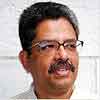Books must be chosen carefully; in comparison, prospective brides don’t need more than a perfunctory side glance
It’s that time of the year again (actually, it is always that time of the year but we don’t notice it). The time to select books that you are actually going to read rather than the ones you think you ought to read.
For many years now I have planned to read Anna Karenina. It’s in my ‘To be read soon’ (or alternatively, ‘one of these days...’) bookshelf next to Joyce’s Ulysses and Proust’s In Search of Lost Time. The plan is to read the book on a flight so there are no distractions.
But just before I actually pack the book, however, I get into a panic. What if the passenger beside me thinks I am a big bore whose literary education hasn’t gone beyond 19th century Russia? Can lying on the beach reading Tolstoy do anything for your image? Books must be chosen carefully; in comparison, prospective brides don’t need more than a perfunctory side glance.
Here are the images I don’t want to project – bore, intellectual, frivolous, illiterate, uncaring, sexist – so out go books by Tolstoy, Dostoevsky, Agatha Christie, biographies of movie stars, and books with the picture of the author, usually a woman and often minimally clad on the back cover.
Poetry is a useful standby. Reading a book of poems (with the word ‘poetry’ on the cover so it isn’t mistaken for a self-help book) has its advantages. It shows you have a soft side, think strong thoughts in iambic pentameter, and when push comes to shove, you can find a rhyme for ‘love’. On the other hand, it can create a chasm between you and a potential friend whose only reading experience is confined to checking out the sugar content on the fruit juice can.
Occasionally I am asked to suggest a holiday reading list. And I usually have Proust at the top of the list. Not because I have read every word he has written, but for the diametrically opposite reason.
For years now, my ‘holiday’ reading has comprised one book – Marcel Proust’s masterpiece (In Search of Lost Time). It is the most widely travelled unread book, having accompanied me on holidays for nearly a quarter century now. As Groucho Marx said in another context, it is a wonderful book, and some day I intend to read it. Clearly it is putdownable. Perhaps even unpickupable.
I have read commentaries on the book, other people’s battles with it, the philosophical implications of sitting in a cork-lined room and writing, and recently even a book that shows how Proust beat the scientists to the discovery about how the memory fails. Yet the book itself sits on my shelf, mocking, challenging, provoking, tempting, like an ageing spinster who is on the verge of giving up hope but is putting in one final effort.
Next year we celebrate the silver jubilee of our relationship and it would be a shame to break the habit of a lifetime by actually reading the book now. Our story is a modern version of the virgin and the gypsy; perhaps I might write a book on not reading Proust. There are enough of the other kind anyway.
Occasionally, I have a bet with myself to see how long I can keep from not reading. I imagine conversations in the friendly thirst-quencher thus:
“Do you know I have had the book for a decade and I am yet to read it?” says the local bore. At which point I tell him casually and devastatingly, “That’s nothing, I haven’t read it for 25 years.” Mine is longer than yours.
Proust, surprisingly enough, does not figure on any list of ‘holiday’ reading so common in our newspapers and magazines. I always wonder what these lists are about. Does holiday reading imply there is workday reading? Or books to be read while cycling or while wearing a kilt?
There are lists of books to be read on the beach (what are they? Water-proof and sand-proof?), so I presume somebody somewhere is preparing an annual list of books to be read on the 89th floor of a building.
Proust is above all this. You carry it around for twenty-five years, and celebrate the intimacy by continuing to ignore it on your bookshelf. That is how the best relationships last – you don’t go in search of lost time.


